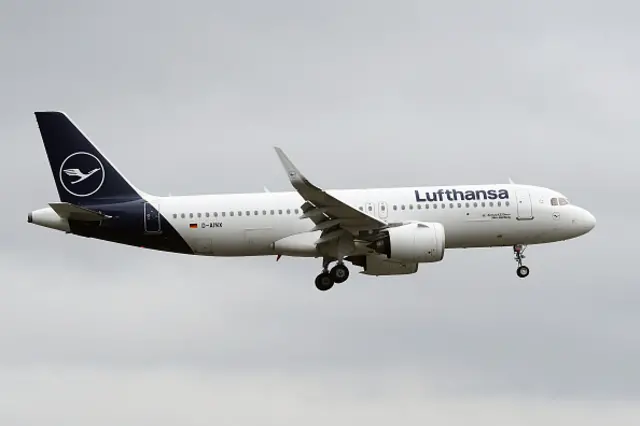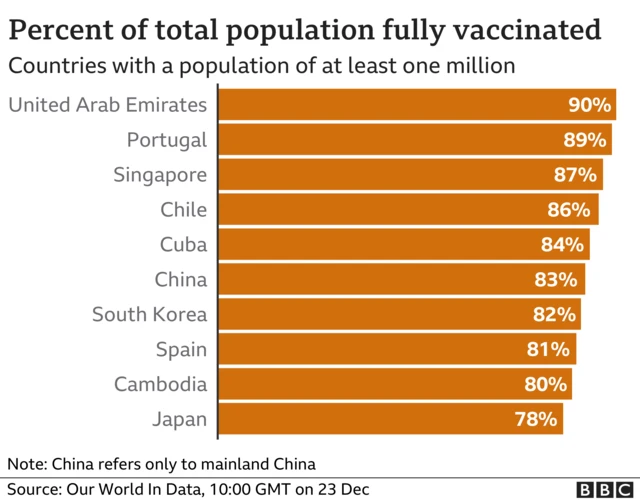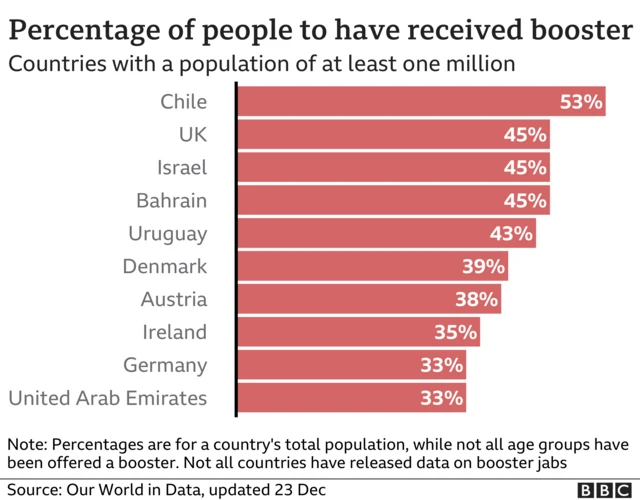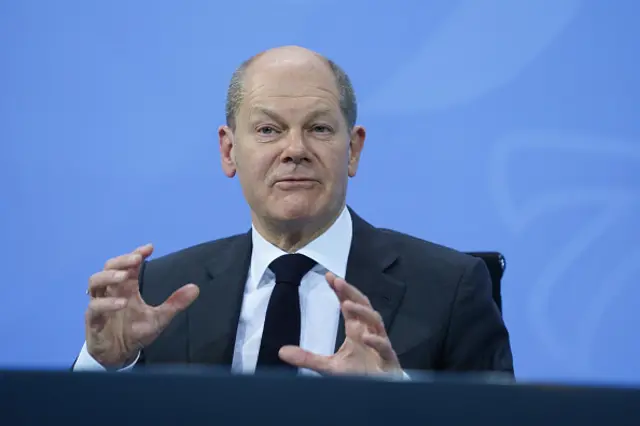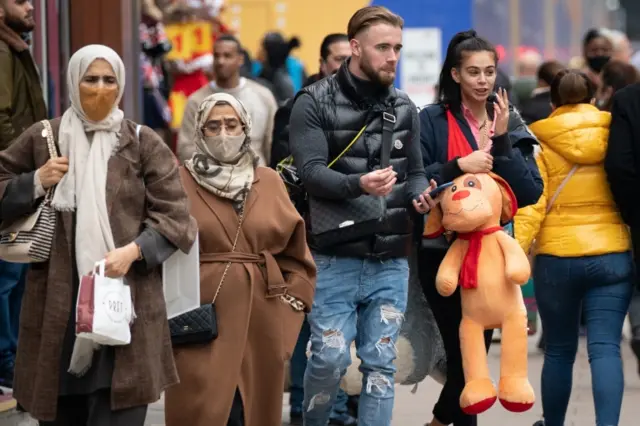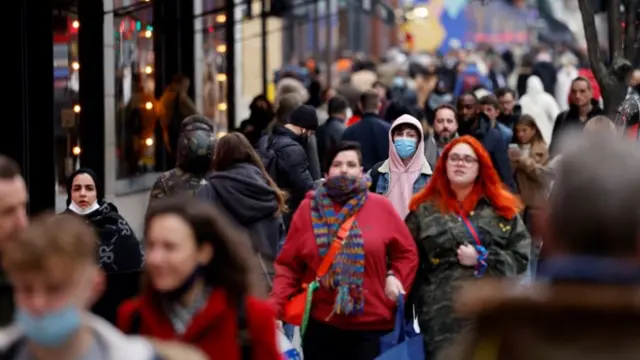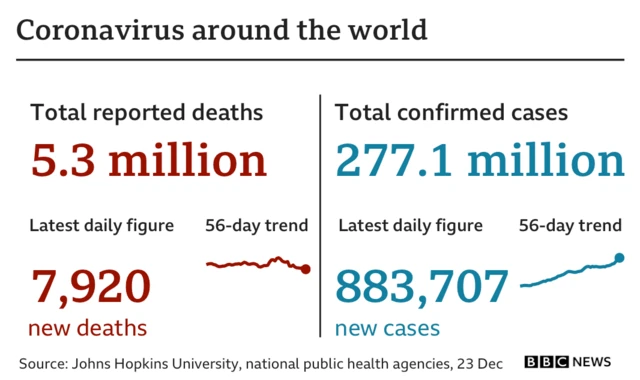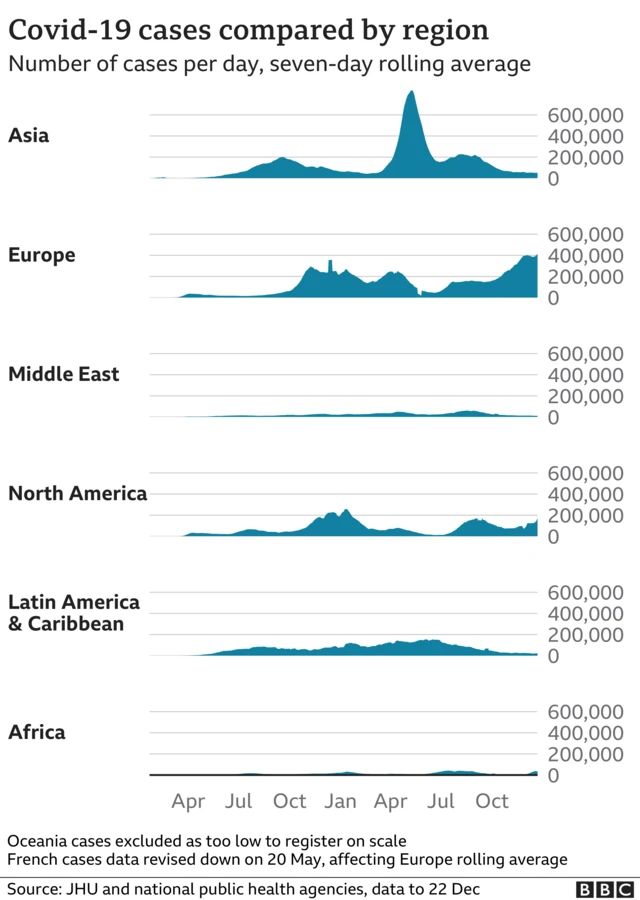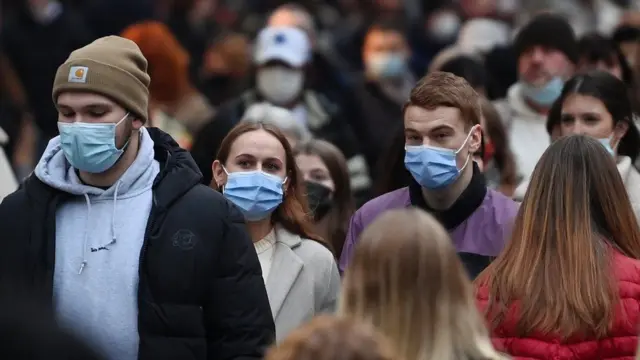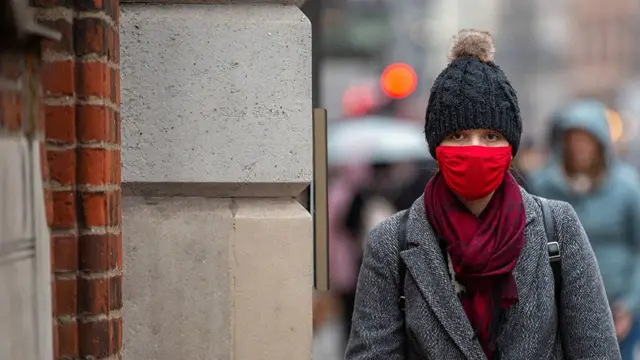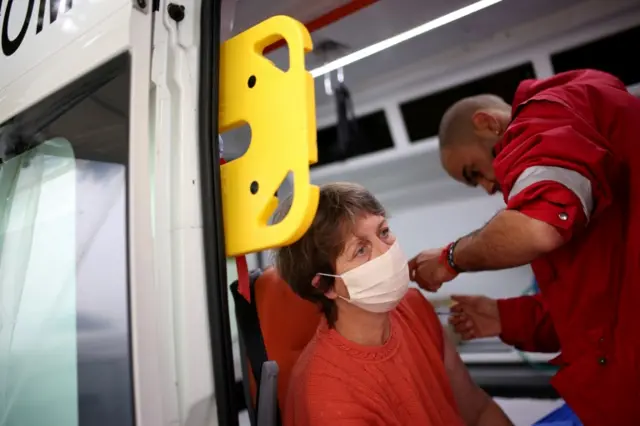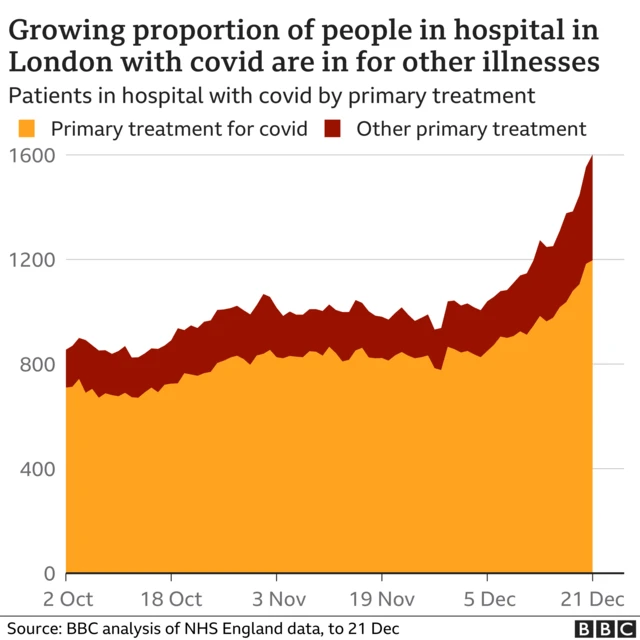This is a nightmare before Christmas, says Scottish nightclub ownerpublished at 15:09 GMT 23 December 2021
Earlier, ministers in Scotland announced nightclubs would have to close for at least three weeks from 27 December.
Donald MacLeod, who owns the Cathouse and Garage nightclubs in Glasgow, accused the Scottish government of "scaremongering" and "ignoring" evidence which suggests Omicron is milder than other variants.
He also said he had not heard any details on when promised government funding would be available to businesses.
"It's certainly not going to be in place before Christmas," he said.
"This is a nightmare before Christmas for all manner of businesses - ever since Public Health Scotland went rogue two weeks ago and scared everybody off the streets, the economy has been sliding in a vortex ring of doom and gloom.
"This is disgraceful, this is no way to run an industry never mind a country. It's contemptuous."

